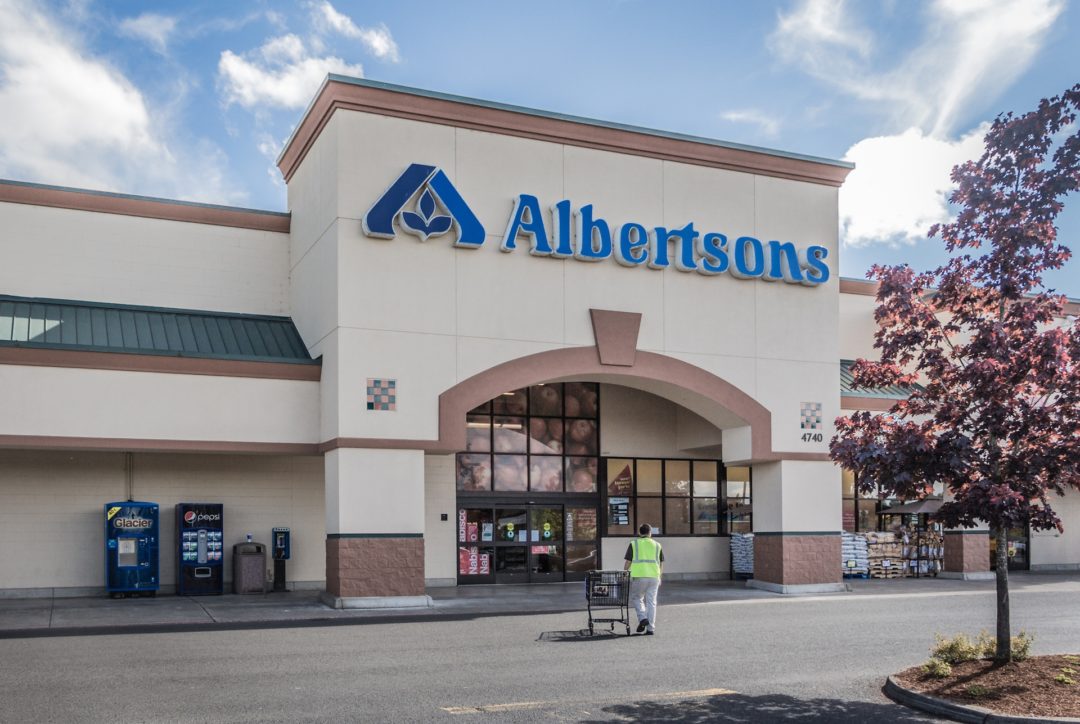
Albertsons Announces Acquisition of Remaining Rite Aid Stores

According to a companypress release, the combined company is expected to serve more than 40 million U.S. customers per week at approximately 4,900 locations, 4,350 pharmacy counters, and 320 health clinics across 38 states and Washington D.C. It is expected to generate revenues of $83 billion.
Current Rite Aid chairman and chief executive officer (CEO) John Standley will become CEO of the combined company, and current Albertsons Companies chairman and CEO Bob Miller will serve as chairman. Leadership from both companies will run the company, which will be dually headquartered in Boise, Idaho and Camp Hill, Pennsylvania. Most Albertsons company pharmacies will be rebranded with the Rite Aid name. In addition, the combined entity will continue to operate Rite Aid stand-alone pharmacies, officials say.
“This powerful combination enables us to become a truly differentiated leader in delivering value, choice, and flexibility to meet customers’ evolving food, health, and wellness needs,” said Rite Aid chairman and chief executive officer John Standley. “The combined platform positions Rite Aid to capitalize on our pharmacy expertise and expand and enhance our pharmacy footprint. We are confident that delivering improved customer experiences and value will drive growth and profitability while creating compelling long-term value for shareholders.”
“The hallmark of Albertsons Companies’ business has been to become the favorite local supermarket of our customers,” said Bob Miller, Albertsons Companies chairman and chief executive officer. “We have always put our customers first, and our combination with Rite Aid will enable us to even better serve the valuable pharmacy customer by providing a fully integrated one-stop-shop for our customers’ food, health, and wellness needs. I have long known the excellent management team at Rite Aid, and we share a singular focus on superior customer service and a clear vision and strategy to become the favorite local supermarket and pharmacy to shoppers in every neighborhood we serve.”
The move comes during a flurry of activity in the pharmacy sector. Late last year, CVS Healthagreedto buy Aetna for $77 billion. And, as reported inCNN, Walgreens wanted to buy up all of Rite Aid in 2015, but federal regulators rejected that agreement on antitrust grounds. In September, the two companies announced a scaled back version for nearly 2,000 of Rite Aid's stores. That left Rite Aid with around 2,600 remaining stores.
What does this merger mean for the industry going forward? The prognosis is mixed, says Jay Jacobowitz, president and founder of Retail Insights. "According to today’scoveragein the Wall Street Journal on this, the companies cited research showing consumers are more loyal to a store where they can get both prescriptions and groceries. This, plus an estimated $375 million in synergistic annual savings from combining make up the fundamental rationale for the deal. So far so good.
"Supervalue – Albertsons is a wholesaler and a retailer using multiple retail banners with several opposing market positions from 'value' to 'premium,' including Safeway," Jacobowitz continues. "The company has struggled for better than a decade to consistently grow, and its far-flung and complex components I believe are the major reason for this lack of progress.
"With the other two major, larger pharmacy companies, Walgreen Boots Alliance and CVS, becoming vertically integrated by acquiring pharmacy benefits managers and health insurers, and with Rite Aid’s recent failure to sell itself entirely to Walgreens (the company is in the process of transferring 1,932 of its 4,600 stores to Walgreens), the pressure on Rite Aid to do some kind of deal is immense. And, with retail stocks in general being hammered by the disruption of online shopping, it is a buyers’ market.
"So, does 1 and 1 make 3? Assuming the Rite Aid – Albertsons deal goes through, the company may achieve the synergies and savings it forecasts, but will still be a many-faceted — and in my view, unwieldy — wholesaler, food retailer, and pharmacist. The saving grace may be that all Rite Aid – Supervalu direct competitors, think Kroger and Ahold Delhaize, as well, face the same dilemma of needing scale to survive. It just won’t be very pretty."
Albertsons is a privately held company and Rite Aid is public. It's not yet clear what the name of the new company will be.
For related stories, see the following:
Albertsons Organic Sales Pass $1 Billion
Albertsons Teams with Instacart for Same-Day Delivery

The editorial team at WholeFoods Magazine has decades of experiences reporting on natural products industry news, trends, and more. This national, monthly business-to-business magazine has been published continuously for nearly 40 years (the magazine was founded in 1977, and has been owned by Wainer Finest Communications since 1984). It is the longest-tenured media outlet of its kind in the natural products industry. The editorial focus at WholeFoods Magazine is, and always has been, on informing and educating members of the natural products industry.
The Magazine
Information
About Us
NOTE: WholeFoods Magazine is a business-to-business publication. Information on this site should not be considered medical advice or a way to diagnose or treat any disease or illness. Always seek the advice of a medical professional before making lifestyle changes, including taking a dietary supplement. The opinions expressed by contributors and experts quoted in articles are not necessarily those of the publisher or editors of WholeFoods.







